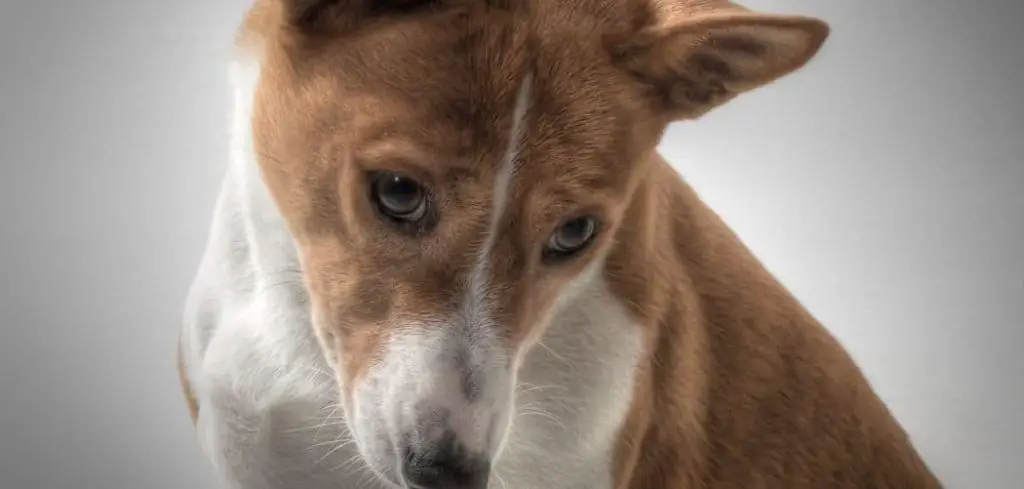Panting is often linked to heat or physical exertion, but when your dog is panting without obvious reason, boredom could be playing a role.
Persistent panting combined with restless behavior may indicate your dog needs more stimulation in their daily routine.
We outline the common reasons why dog panting and boredom happens, what you can do at home, and when to seek veterinary help.
Dog Panting and Boredom — Why It Happens
Dogs may pant from boredom due to a combination of mental restlessness, mild stress, and pent-up energy. When a dog lacks sufficient physical exercise or mental enrichment, they may develop repetitive behaviors like panting, pacing, or vocalizing.
This can be more common in high-energy breeds, younger dogs, or dogs that spend long hours alone.
Boredom-induced panting might also be linked to anxiety, attention-seeking, or frustration from not being able to engage in natural behaviors like sniffing, exploring, or playing.
Over time, this can create a cycle where the dog pants more, appears restless, and becomes harder to settle.

Dog Panting and Boredom: Common Causes
Lack of Physical Exercise
Dogs need daily activity to stay physically and mentally balanced. When they don’t get enough exercise, their energy has nowhere to go, which can lead to panting as a sign of restlessness.
You may also notice pacing, whining, or destructive chewing alongside the panting. This is especially true for breeds bred for work, like Border Collies or Labradors, who require more activity than short walks can provide.
Over time, insufficient exercise can lead to chronic boredom, weight gain, and behavioral issues.
Read more: Dog panting excessively (Here’s why)
Insufficient Mental Stimulation
A dog’s brain needs just as much exercise as their body. Without challenges like puzzle toys, training sessions, or scent games, boredom can set in quickly.
Panting in this case is often accompanied by attention-seeking behaviors like pawing at you or nudging toys into your lap.
Dogs without enough mental stimulation may also sleep excessively during the day but become restless at night.
Long Periods of Isolation
Many dogs struggle when left alone for extended hours. Even if they’re physically comfortable, the lack of social interaction can cause low-level stress, shown through panting.
You might also notice howling, barking, or pacing when you’re away. This prolonged loneliness can contribute to separation anxiety.
While some dogs adapt better to alone time, many need mid-day breaks or interaction to avoid boredom and stress.
Anxiety and Attention-Seeking
Panting can also be part of a learned behavior to gain attention. If your dog notices that panting leads to you engaging with them, they may use it as a communication tool.
However, if it’s tied to anxiety, you may also see trembling, lip licking, or avoidance behaviors.
In boredom-related cases, this kind of panting usually stops once the dog is engaged in a fun or stimulating activity.
Underlying Discomfort or Mild Pain
Sometimes what looks like boredom panting can be a subtle response to discomfort. Dogs that feel slightly unwell may seem restless and pant more, especially if they’re unsure what’s wrong.
In these situations, they may not show obvious illness but will benefit from a check-up to rule out early signs of pain or medical issues.
What to Do If Your Dog Is Panting and Bored
Begin by increasing both physical and mental stimulation. This can mean longer walks, varied routes, and play sessions that involve chasing, fetching, or tug-of-war.
Incorporate enrichment games, such as hiding treats around the house or offering puzzle feeders. These activities help your dog work their brain and reduce boredom.
Rotate toys regularly so they stay exciting. Even a toy your dog hasn’t seen for a week can feel brand new.
If your dog is home alone for long stretches, consider a dog walker, pet sitter, or doggy daycare to provide social interaction and activity.
Lastly, ensure your dog has a predictable daily routine, as this provides a sense of security and reduces anxiety-driven panting.
When to Call or Visit Your Vet
If panting continues even after you’ve increased exercise and mental stimulation, it’s wise to rule out health issues.
Contact your vet if panting is accompanied by coughing, lethargy, limping, vomiting, or sudden changes in appetite.
Panting that seems excessive, occurs during rest, or is paired with signs of distress may indicate a medical problem requiring prompt evaluation.
In older dogs, persistent panting should always be taken seriously, as it can point to heart or lung conditions.
Read more: Dog Panting and Bone Cancer (Here’s why)
Key Takeaway
Boredom is a real and often overlooked cause of panting in dogs, especially in active breeds or those lacking daily engagement.
By enhancing physical activity, mental challenges, and social interaction, you can help your dog feel calmer and more content.
If changes at home don’t reduce panting, don’t ignore it—a veterinary check-up can rule out hidden health concerns and give you peace of mind.
